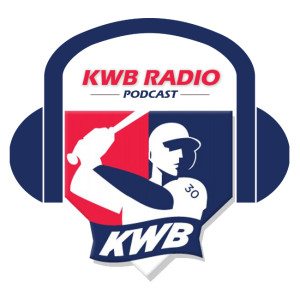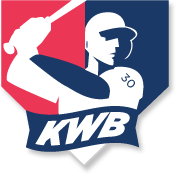
With the Major League Baseball Draft upon us, I thought I would create a sort of Major League Draft cheat sheet, so those who follow can learn the history of the draft, how it’s currently set up and perhaps offer answers to the most asked question, “what do scouts look for?”
The Major League Baseball Draft
The year 1965 marked the beginning of the MLB First-Year Player Draft and for many years since, amateur players and their parents have waited in anticipation of the big day (or in recent years, the big three days). Under the current collective bargaining agreement, the draft lasts 40 rounds, plus compensatory picks.
Who Evaluates The Players?
Each Major League organization is equipped with multiple full-time scouts which include area scouts (and their part-time helpers called “bird dogs”), national cross-checkers and scouting directors. They all work together in collecting names, going out and evaluating players in games and showcases, writing reports on those players and begin to compile information on a white board they will use in the Draft Room come draft day.
Professional scouts are everywhere. Their mission is the find the next “great one,” and they go to great lengths to unearth the next MLB superstar. But for every “can’t miss stars” like Dave Winfield, Ken Griffey, Jr, Tony Gwynn and Mike Trout, there are many others who have been drafted and reach the Major Leagues without much fanfare. It’s this kind of hard work behind the scenes each and every year, that goes relatively unnoticed by the casual fan, but undoubtedly shapes the future of Major League Baseball.
What Are the 5 Tools That Scouts Evaluate?
- Speed – how you run and how much range you have.
- Arm strength – self-explanatory!
- Fielding – what’s your fielding ability and your actions. How good is your footwork?
- Hit – can you hit for average? Your overall hitting ability.
- Hit for Power – hardest thing for scouts to find in baseball. It’s a coveted skill set valued by all 30 teams.
Here is the kicker. In today’s game the most asked question is, “Is there a 5-tool player?” In my opinion the answer is NO. There are a few that comes close, possessing 3-4 tools. But to be exceptional across the board and possess all 5 tools, has hardly ever been seen. There are 2 players in my lifetime that might have displayed all 5 tools – Bo Jackson and Josh Hamilton. And it’s fascinating that neither of them will ever be in the Hall of Fame – for different reasons.
Overall, scouts are looking for athletes. They want to evaluate a player who understands how to play the game (which is rare in today’s day game because of showcase baseball and private cage lessons). They can tell the player who has specialized in baseball with private lessons since age 6. They want guys who have experience playing other sports, being coached by different coaches, and have played in different arenas with different competitive experiences.
If you want to learn how your tools can get you drafted, Chicago Cubs National Crosschecker Tim Adkins, laid this out beautifully for us on KWB Radio. You can listen to his episode here.

What’s the 20-80 Grading Scale Scouts Use To Evaluate?
Scouts use a grading scale using the numbers 20-80 (or 2-8 for some organizations) to evaluate players. 20 is the lowest grade that a player can get, with 80 being the highest. Most prospects will hover around the 50 mark, which indicates the average grade of tools possessed by a current MLB player.
So how do they come up an overall number for a player? They simply grade all tools out on the 20-80 scale, rate them, then divide them out based on the number (5), thus giving you the overall number. Once you get the number, it gives you the parameters of where that player is projected.
What scouts are also trying to project is how can the player meet his upside down the road? Does that tool the scout is putting on him project out a few years from now and develop to play in the big leagues? Physical limitations are different for each player. Everyone’s ceilings are different. Scouts will ask themselves – when a player reaches his ceiling how can he be consistent? Does he have what it takes to be consistent?
This brings up the question, does average play in the big leagues? If you ask the scouts it’s a resounding YES. Most of the prospects they are evaluating for the draft have present-average tools. We sat down with New York Mets area scout Jim Thompson for Episode 18 on KWB Radio, to talk about how average plays and what he looks for when evaluating a player. You can listen to our conversation here.
Are you wondering if selling average to a scouting director is hard?
It’s actually not hard at all.
In fact, after the first couple of rounds, the argument in the “war room” is who do you think has the best chance to get to the big leagues and perform at that level being consistently average?
What’s the Best Venue To Evaluate a Player?
If you ask the scouts, they want to see a player compete in a meaningful game. In 2013 when I was the hitting coach for the USA Baseball 18U National Team, we played in the IBAF World Cup in Taichung, Taiwan and most, if not all, of the MLB teams were represented by at least one scout, scouting director or front office member. Why? Because for all of the USA players, except one returning member, this was the first time they would play in a meaningful game. The scouts wanted to see if the skills they saw all summer at the showcase events would transfer into high stakes, highly intensive and meaningful games when the players were playing for a Gold Medal.
I understand not everyone is going to have the opportunity to play for USA Baseball, so whenever a scout can see a player play in a high school, college, summer ball or American Legion game, scouts will take the opportunity to evaluate a player in a game setting, no matter where it is.
What Scouts Look For In Position Players
OUTFIELD – If you’re a corner OF, you don’t need to be plus defender, but you also don’t want to be known as below average. With that being said, your bat will have to play better than average. You need to hit. And as one scout puts it, “corner outfielder’s need to display power, power, power.” In CF, they are looking for plus defense and range and they want to see you hit, and if you have any power.
CORNER INFIELD – Scouts are looking for a power/hit combo at the corners. At 3B you need to be able to play above average defense, as well as showcase the power/hit tool. At 1B, you need to be adequate on defense, but most importantly show that you’re an offensive player first and foremost.
MIDDLE INFIELD – At shortstop, scouts are looking for defense (range, footwork, arm strength), see if you can hit, hit for power. At second base, they are looking to see your hit tool, do you have any power, and how does your defense play.
CATCHER – You need the ability to call the game yourself, handle the pitching staff and control running game. Your bat doesn’t need to be as important when evaluating.

What Does a Scout Look For In a Hitter?
The swing has to be simple. Not a lot of extra stuff in swing. Some scouts will differ on what’s more important – bat speed over strength, but they all look for whether a hitter has control of his barrel. They want to see looseness in swing. Being calm in the box = confidence in their eyes. They want to see how it comes off the bat.
Consistency is huge – strikeout to BB ratio is huge – can you square up a ball and do you know the strike zone and have an approach?
Can you produce extra base hits (doubles and RBI’s pay bills at the MLB level)?
Power comes at a premium – it’s the standout tool for hitters.
There are some things that scare scouts when evaluating hitters. A big one is swing and miss. Another is, if you’re fouling balls off all the time, what makes a scout think you’re going to be better than that in pro ball?
What Does a Scout Look For In a Pitcher?
What does his arm action and delivery look like? Can he repeat his mechanics? What kind of athlete is he? They will dig into the background of a pitcher to find things like: does he have a personal pitching coach; does he throw all year long; what makes him tick on the mound? What kind of bullpen routine does he have? Is he a “stuff” guys who pound the strike zone?
They are also evaluating whether a pitching prospect will be a starter or have to go to the bullpen in professional baseball, by observing the ease of how the mechanics work because that will help you stay in starting rotation at the next level. The pitchers who have good feel of a changeup stand out because that helps them move through a minor league system quicker.
A pitcher does not necessarily have to have a swing and miss pitch, to be drafted. If he has average pitches, command is superior in order for the average stuff to play.
And last but not least, what kind of competitor is he?
What Happens During an In-Home Visit?
The purpose of an in-home visit is for the scouts to get to know the player and his family better. They answer any questions that the family has about the process, about the team or anything else that comes up in conversation. If you don’t get an in-home visit from a scout, it doesn’t mean you will not have a chance to get drafted; it just means you probably will have to wait a few rounds (or days) until you get your name called. These visits are typically reserved for the prospects projected to go in the top few rounds.
Will A Player Be Seen If He’s Not On A Popular Travel Team?
YES. With technology today, if you’re a prospect and you’re good enough, scouts will find you.
How Do I Get My Name Submitted For the Draft?
In order to be eligible to be drafted, your name has to be submitted to the Major League Baseball Scouting Bureau by a scout from an MLB organization. Once your name has been submitted, you will be assigned an identification number. You are not eligible to be drafted unless you are in the system and have been issued an ID number by Major League Baseball.
Summary
Bottom line, scouts are looking for a player who likes to work. He needs to know the game, not just be a showcase player. There is baseball IQ that is lacking among young players today, and it definitely shows up when the games start.
Scouts will tell you that tools get you drafted, but becoming a baseball player will get you to the big leagues.
If you’re a prospect, don’t forget the most important, but hardest part of all of this – enjoy the process!

ORDER MY NEW eBOOK “FINDING CLARITY”
“You won’t find a one-size-fits-all philosophy in Finding Clarity. Instead, players from all levels will begin to find their individual purpose, their WHY and ultimately themselves.”
Adam Haseley (Philadelphia Phillies)
For more than a decade, Kevin Wilson has been one of the most respected hitting coaches in the game. He works behind the scenes as a private hitting consultant to some of the best hitters in Major League Baseball. In 2013, Kevin was the hitting coach for the USA Baseball 18U National Team. Team USA beat Japan for the Gold medal at the IBAF World Cup in Taichung, Taiwan.
He is the author of the Amazon #1 Best Sellers The #GoodBatting Book and Finding Clarity: A Mindful Look Into the Art of Hitting and co-hosts a popular podcast, KWB Radio, that showcases unique conversations with the pros. If you want Kevin to speak at your next event or if you want take advantage of his popular 2-day KWB Experience for players and coaches, contact Kevin today!
Follow Kevin on twitter @KWBaseball and visit his website KWBaseball.com

 But nonetheless we began to dive into his faith. We started finding verses in the Bible that related to where he was in his life both on and off the field. Slowly but surely, he began to change. I could tell by his demeanor that he wasn’t fighting as much. His tone had become calmer. He was beginning to become more reflective. He made a conscious effort to spend time getting to know his teammates. He was starting to find his
But nonetheless we began to dive into his faith. We started finding verses in the Bible that related to where he was in his life both on and off the field. Slowly but surely, he began to change. I could tell by his demeanor that he wasn’t fighting as much. His tone had become calmer. He was beginning to become more reflective. He made a conscious effort to spend time getting to know his teammates. He was starting to find his 

